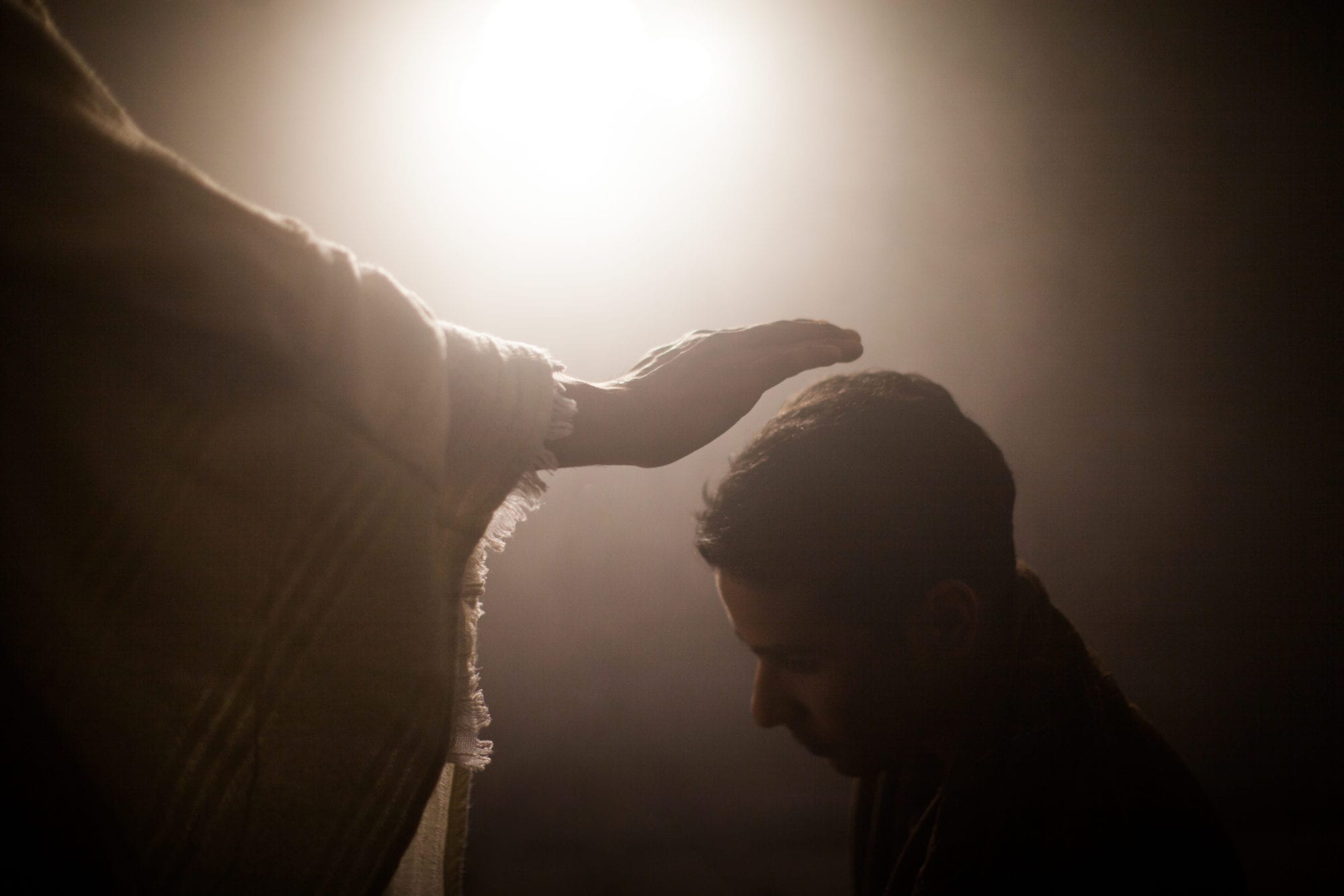The Celebration of Reconciliation
The story of the Prodigal Son, found in Luke 15, is one of the most famous and beloved illustrations Jesus uses to describe the outcome of repentance and relational reconciliation. The story of the younger son’s resistance to his father, his rejection and rebellion, are well known. So, too, his tragic destination – entertaining “pigs and pods.”
Goodness, Grace, Devotion
We see God’s character of goodness, grace, and devotion displayed in the Prodigal’s father. The character of religious legalists is reflected in the angry, dismissive, and judgmental reaction of the older brother to the father’s restoration of the younger brother. (Has the church today become the older brother?)
But the younger has “come to his senses.” He reflects on both the faithfulness and generosity of his father as well as his own culpability for his dismal circumstances. He repents (“I have sinned against heaven and in your sight…”) and returns to his father seeking only a simple servant’s place. The father will have none of it.
“Quickly, bring the best robe, and put it on him, and bring a ring for his hand and sandals for his feet; and bring the fatted calf, kill it, and let us eat and celebrate; for this son of mine was dead and has come to life again; he was lost and has been found. And they began to celebrate” (Luke 15:22-24).
This extravagant response of the father to the return, reconciliation with, and restoration of his younger son is astounding from a human perspective. Would we be so generous? Would we demand something or continue to blame – as the older son does? But Jesus intended the story of the prodigal son to demonstrate the forgiving love of God. The very love we are commanded to give each other. It is extravagant. It is to be normative!
Jesus intended the story of the prodigal son to demonstrate the forgiving love of God. The very love we are commanded to give each other. It is extravagant. It is to be normative!
The Recovery of Relationship
Earlier in Luke 15 Jesus has given two other similar illustrations. A sheep is lost; a coin is lost. Both are recovered. (These are restorative passages. Something already owned was lost. Hence they refer not to evangelism, but reconciliation and restoration within the Body of Christ.) In both cases, as in the case of the Prodigal’s return, there is celebration and rejoicing (Luke 15:6 & 9). In fact, “rejoice,” “joy,” and “celebrate” are used seven times in the three accounts. Celebration and joy are the biblically expected outcomes of real relational forgiveness inside Christ’s church.
Celebration and joy are the biblically expected outcomes of real relational forgiveness inside Christ’s church.
But in the tension and fear of conflict, most flee or fight, hide or blame, go silent or gossip. It has been this way since the Garden (Genesis 3:8-12). So we often remain stuck, unwilling and ill-equipped to seek resolution to conflict. Many churches do not appreciate, understand, or teach the absolute priority of relational reconciliation.
In the tension and fear of conflict, most flee or fight, hide or blame, go silent or gossip. It has been this way since the Garden.
Witnessing Peacemakers
The Sermon on the Mount found in Matthew 5-7 reminds us of the qualities of Kingdom-type living. The sequence found in Chapter 5 is instructive. “Children of God” are identified as “Peacemakers” (v. 9). Those who make peace are compared to the prophets of old (vv. 10-12).
Could a reputation for reconciling contribute to the prophetic witness for God emanating from churches? It certainly seems so. In the next verses we are called to be the “salt of the earth” (v. 13) and the “light of the world” (vv. 14-16), as ways of displaying God’s glory.
Next, Jesus affirms the Law. While it doesn’t save, it does reflect God’s unchanging standard for righteousness. Then Jesus provides His first illustration of the Law’s nuanced perfection (vv. 21-26).
Within this context Jesus explains God’s true priority for relational reconciliation. Note the emphasis on the word “first.”
“Therefore if you are presenting your offering at the altar, and there remember that your brother has something against you, leave your offering there before the altar and go; first be reconciled to your brother, and then come and present your offering” (Matthew 5:23-24).
“If I get around to it; When I feel like it; But it’s not my fault, you don’t know what he did to me,” won’t cut it. FIRST, be reconciled. (I think that means first!)
“If I get around to it; When I feel like it; But it’s not my fault, you don’t know what he did to me,” won’t cut it. FIRST, be reconciled.
Acceptable Worship
In Malachi, the prophet laments for God.
“A son honors his father, and a servant his master. Then if I am a father, where is My honor? And if I am a master, where is My respect?” says the Lord of hosts to you, O priests who despise My name….” “But when you present the blind for sacrifice, is it not evil? And when you present the lame and sick, is it not evil? Why not offer it to your governor? Would he be pleased with you? Or would he receive you kindly?” says the Lord of hosts. “But now will you not entreat God’s favor, that He may be gracious to us? With such an offering on your part, will He receive any of you kindly?” says the Lord of hosts. “Oh that there were one among you who would shut the gates, that you might not uselessly kindle fire on My altar! I am not pleased with you,” says the Lord of hosts, “nor will I accept an offering from you” Malachi 1:6 & 8-10.
The simple priority for the worship of God at His Temple was to bring animal sacrifices without spot or blemish. The people of God in Malachi’s day did not. Nor did they seem to care that they did not. It was not a priority.
“Just shut the doors and turn off the lights,” is God’s evaluation of their worship. “I will not receive such ‘worship’ from you.”
What might He say if He were to evaluate our offerings “on the altar” in this day? What assessment would the Lord give our Sunday “worship services” as conflicts rage incessantly within the church while reconciliation is fear-invoking and seldom pursued – where forgiveness is only a word, not a relational reality?
What assessment would the Lord give our Sunday “worship services” as conflicts rage incessantly within the church while reconciliation is fear-invoking and seldom pursued – where forgiveness is only a word, not a relational reality?
Too convicting? Is the party over? Should we just turn out the lights?
Join the Party
Hardly! In Forgiven Communities the party is just starting! Celebration and extravagant joy are experienced every day in churches serious about reconciliation. But serious reconciliation begins with the “sacrifices” God does not despise, “a broken and contrite heart” (Psalm 51:17).
In Forgiven Communities the party is just starting! Celebration and extravagant joy are experienced every day in churches serious about reconciliation.
Where forgiveness reigns, joy abides and celebration is a daily event. People will notice. “By this, all men will know” (John 13:35).
Where forgiveness reigns, joy abides and celebration is a daily event. People will notice. “By this, all men will know” (John 13:35).
Copyright © 2019 Len Crowley. All rights reserved.
 Len Crowley serves on the board of Strategic Renewal. He is a graduate of Talbot Seminary and served as a senior pastor for almost three decades. He has given leadership to a number of ministry boards and has alsobeen active in church planting. Len and his wife, Linda, live in Monument, Colorado.
Len Crowley serves on the board of Strategic Renewal. He is a graduate of Talbot Seminary and served as a senior pastor for almost three decades. He has given leadership to a number of ministry boards and has alsobeen active in church planting. Len and his wife, Linda, live in Monument, Colorado.



